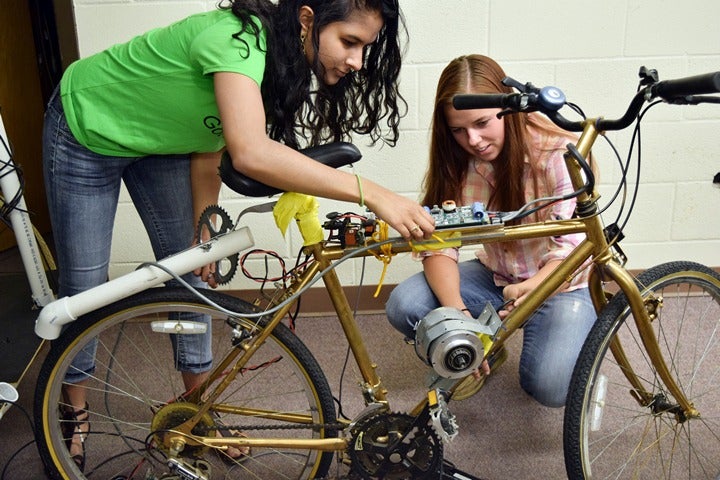Clearing the air in India

As a junior majoring in engineering physics at CU-Boulder, Gopalakrishnan, who grew up in Superior, Colo., and attended Peak to Peak Charter School, realized she could do something about both problems. She tackled the issue by making it the focus of a semester-long project in the engineering management class she took with instructor Seth Murray. Over the course of the semester, she began to hone the idea of selling hybrid conversion kits for India’s gasoline-powered rickshaws and garnered the support of her classmates.
“I found that I could address both these problems with hybrid conversion kits, and create social and environmental benefits in a developing country while still making profit,” she said.
Together with a group of 10 fellow CU-Boulder engineering and business students, Gopalakrishnan launched a startup business, Surya Conversions, to build and market the hybrid kits. The team is developing its prototype in the fall of this year and plans to travel to India over winter break for final testing. In 2015, the team plans to implement 500 to 1,000 of the kits in India before scaling up production and extending into other countries.
The team estimates a kit will cut a rickshaw’s emissions by 33 percent each day, the equivalent of taking 1 million cars off the roads of India. They will institute a payment plan that allows rickshaw drivers to pay off their kits over the course of the year, with payments offset by savings in gas. After that initial year, the team estimates drivers’ income will increase 33 percent due to their fuel savings.
Gopalakrishnan and her team kicked off their business funding by participating in CU-Boulder’s New Venture Challenge last spring, taking home the Social Impact Prize, which awards $3,000 to the business that best harnesses commercial models to create social or environmental change. They also won the Sustainability Showcase at the Conscious Capitalism Conference, hosted by the Leeds School of Business.
The team recently launched a Kickstarter crowdfunding campaign that runs through Aug. 8, through which it hopes to raise $5,000 to complete its prototype.
“In Colorado, we work so hard to preserve the state’s astonishing natural beauty,” Gopalakrishnan said. “I can’t help but imagine that much of India could retain some of its natural beauty as well if more efforts are made there, as they are here in Colorado, to reduce pollution.”




